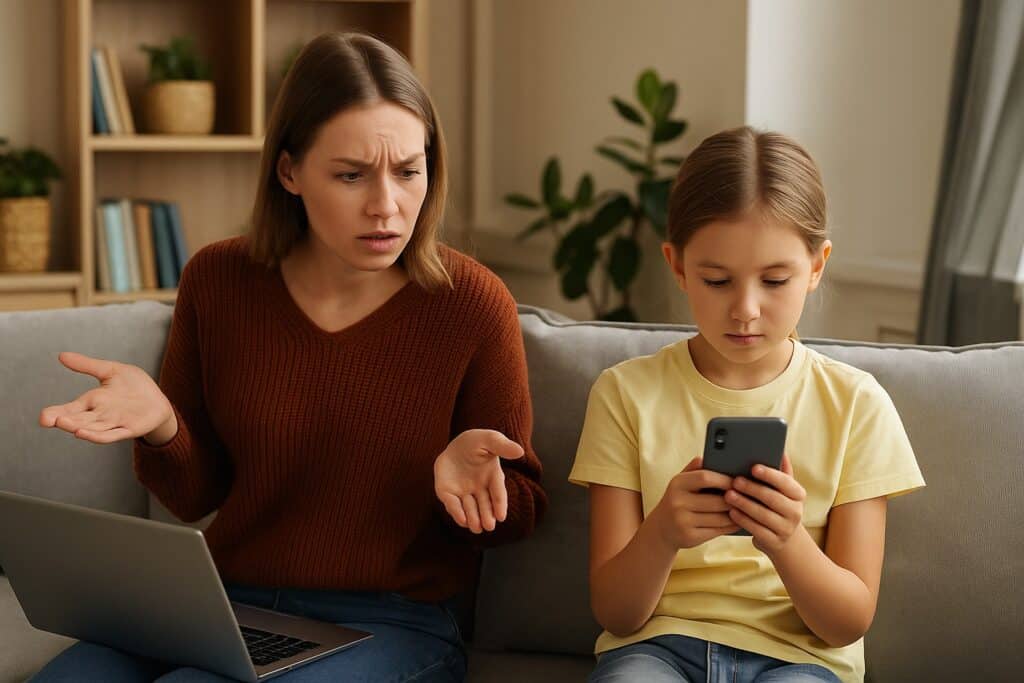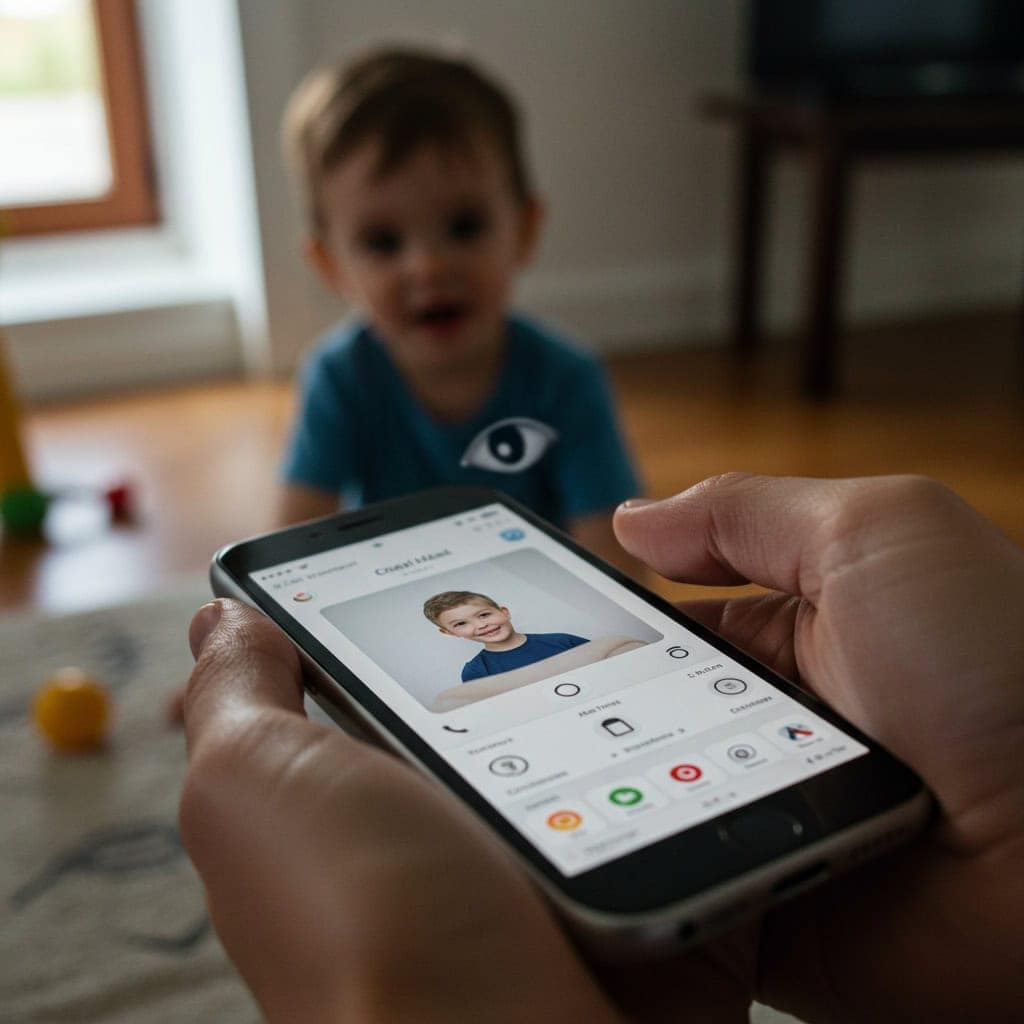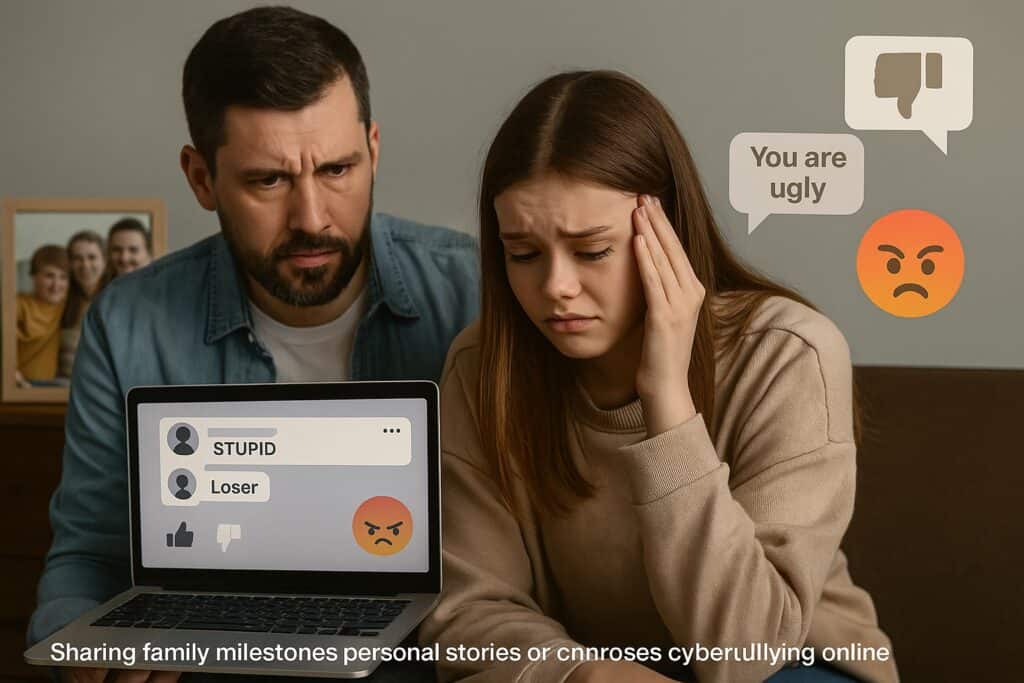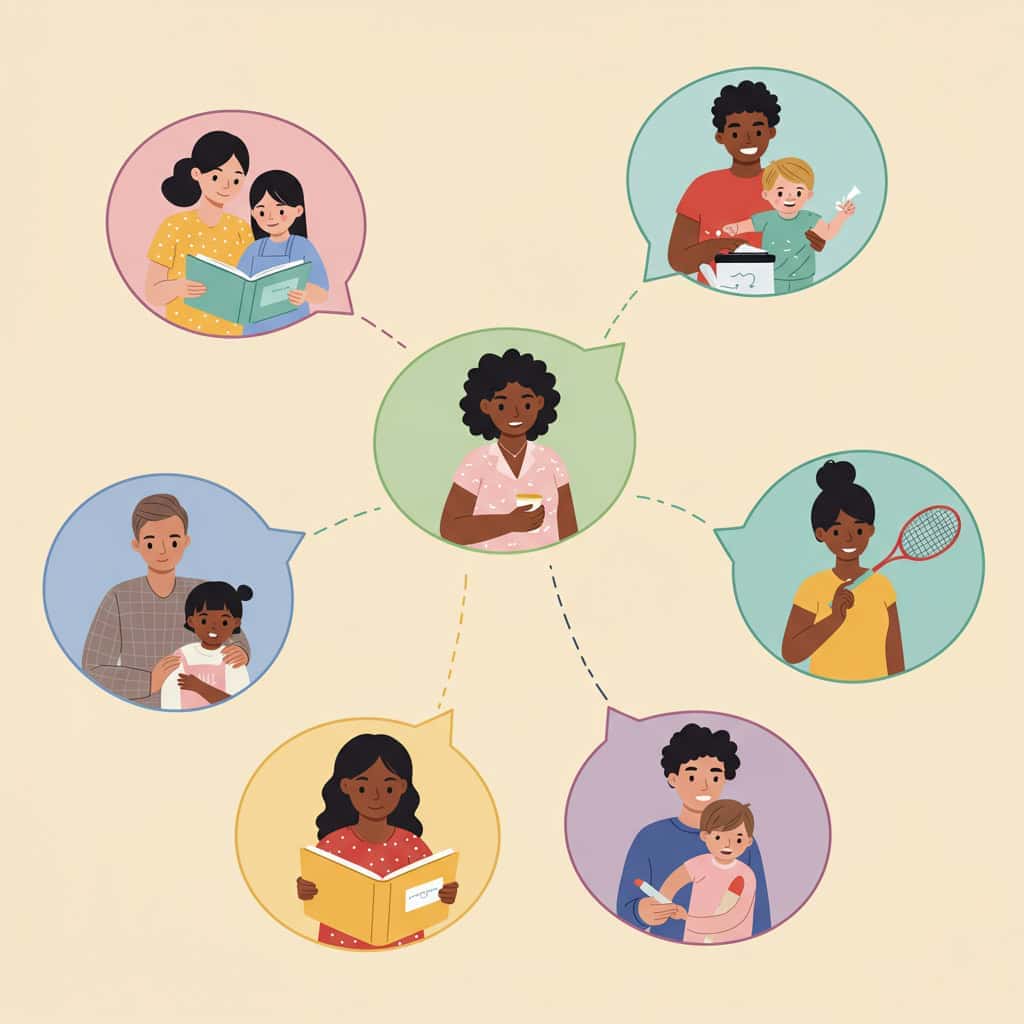Social Media Is Quietly Sabotaging Parents: 15 Truths Every Mom and Dad Should Know
In today’s digital age, social media platforms offer parents unprecedented opportunities to connect, share experiences, and seek support. However, beneath this veneer of connectivity lies a complex web of challenges that can subtly undermine family dynamics. From the pressures of ‘sharenting’ to the risks of parental ‘phubbing,’ the impact of social media on parenting is multifaceted and profound. This article delves into 15 critical truths that every mom and dad should be aware of, shedding light on how social media can influence parenting decisions, mental health, and relationships.
1. The Comparison Trap Intensifies Parental Guilt

Social media platforms often showcase idealized versions of family life, presenting meticulously curated images of well-behaved children and immaculate homes. This constant exposure can lead parents to compare their own experiences to these polished portrayals, fostering feelings of inadequacy and self-doubt. Research indicates that such social comparisons are linked to increased stress and decreased self-esteem among parents. A study published in the *Journal of Child and Family Studies* found that negative feelings arising from social comparisons on social media were associated with higher levels of depression, even after controlling for gender. (link.springer.com)
2. Spreads Misinformation and Pseudoscience

Social media platforms are rife with unverified health tips, discipline methods, and nutrition hacks, often presented as expert advice. This proliferation of misinformation can lead parents to make decisions that may not be in their children’s best interest. For instance, during the COVID-19 pandemic, false claims about the virus and its prevention circulated widely, causing confusion and fear among parents. A study published in the *Emerging Infectious Diseases* journal found that parents of children undergoing cancer treatment were more likely to believe COVID-19 misinformation than those without such experiences, highlighting the susceptibility of parents to false information. (cdc.gov)
3. Erodes Privacy for Parents and Children

Oversharing personal and children’s data on social media poses significant privacy risks. Instances of “sharenting,” where parents post extensive information about their children, can expose them to identity theft, stalking, and other malicious activities. For example, the TRENDnet security breach in 2012 exposed live feeds from over 700 home security cameras, including those monitoring infants and children, due to inadequate data protection measures. (en.wikipedia.org) To protect privacy, parents should be cautious about the information they share online, regularly review privacy settings on social media platforms, and educate their children about the importance of maintaining personal privacy in the digital world.
4. Monetizes Parental Anxieties

Social media influencers and brands often exploit parental concerns by promoting products and courses that claim to address manufactured insecurities. This practice not only capitalizes on parents’ fears but also raises ethical questions about the authenticity of such endorsements. The Federal Trade Commission (FTC) has issued guidelines emphasizing the need for clear disclosures in influencer marketing to prevent deceptive practices. The FTC advises that influencers must clearly disclose any material connections with brands to ensure transparency and protect consumers. (ftc.gov)
5. Fuels Polarization in Parenting Communities

Social media platforms often prioritize content that generates high engagement, leading to the amplification of divisive and emotionally charged discussions within parenting communities. This algorithmic bias fosters echo chambers where users are exposed predominantly to similar viewpoints, intensifying polarization. For instance, debates over parenting choices, such as breastfeeding versus formula feeding, can escalate into contentious “mommy wars,” creating a toxic environment that discourages open dialogue and mutual support. (arxiv.org)
6. Undermines Professional Advice

Social media platforms often feature quick advice from peers or influencers, which can conflict with established pediatric guidelines, leading to confusion among parents. For instance, while some online sources may advocate for alternative vaccination schedules, the American Academy of Pediatrics (AAP) recommends adhering to the standard immunization schedule to ensure optimal protection against preventable diseases. Parents seeking reliable guidance should consult the AAP’s official resources, such as their website, for evidence-based information on child health and development. (aap.org)
7. Increases Screen Time for Parents and Kids

Parental habits of frequent scrolling and device use can inadvertently model excessive screen time for children, potentially leading to similar behaviors in the next generation. This pattern may result in reduced face-to-face interactions and diminished quality family time. The Mayo Clinic recommends that children aged 2 to 5 years should have no more than one hour of screen time per day, emphasizing the importance of setting limits and encouraging other activities. (klove.com)
8. Exposes Families to Online Harassment

Sharing family milestones or personal opinions on social media can expose families to online harassment. A 2018 Ipsos survey found that 27% of U.S. parents reported their children had experienced cyberbullying. (statista.com) Additionally, a 2022 Pew Research Center study revealed that 46% of U.S. teens aged 13 to 17 have encountered cyberbullying behaviors, with name-calling being the most common form. (pewresearch.org) These statistics highlight the risks associated with online sharing and the importance of safeguarding personal information.
9. Encourages Over-Sharing of Family Moments

The pressure to create content and seek validation on social media can lead parents to share more about their children’s lives than they might otherwise. This over-sharing, often referred to as “sharenting,” can diminish the authenticity of family interactions and may trigger future regrets as children grow older and become more aware of their digital footprint. (us.norton.com)
Experts advise parents to be mindful of the long-term implications of sharing personal moments online. (parents.com)
To balance the desire to share with the need to protect privacy, consider the following guidelines:
Limit Personal Information: Avoid sharing sensitive details such as full names, locations, and daily routines that could be exploited.
Seek Consent: As children grow older, involve them in decisions about what is shared online, respecting their autonomy and preferences.
Use Privacy Settings: Regularly review and adjust privacy settings on social media platforms to control who can view your posts.
Consider Alternative Sharing Methods: Utilize private digital albums or offline keepsakes to document family moments without exposing them to the public.
By thoughtfully considering what is shared and with whom, parents can protect their children’s privacy while still enjoying the benefits of documenting and sharing family experiences. (verywellmind.com)
10. Distorts the Joys and Challenges of Parenting

Social media often showcases idealized versions of family life, presenting highlight reels that omit the everyday struggles and challenges of parenting. This selective sharing can create unrealistic expectations and diminish the authenticity of family experiences. Psychology Today reports that such distorted self-presentation on social media can lead to negative self-perception and increased anxiety among parents. (psychologytoday.com)
11. Invites Unsolicited Criticism and Judgment

Online anonymity emboldens individuals to offer harsh critiques of parenting decisions, leading to public shaming of parents. This phenomenon, often referred to as “mom-shaming,” involves unsolicited judgments about a mother’s choices, from breastfeeding practices to discipline methods. Such criticism can erode self-esteem and foster feelings of inadequacy among parents. Psychology Today highlights that judgment about parenting creates shame, which is disempowering. (psychologytoday.com)
The Atlantic notes that online platforms have amplified this trend, making it easier for individuals to judge and criticize others, both in-person and online. (theatlantic.com)
12. Compromises Parent-Child Bonding Time

Mindless scrolling or the constant documentation of family moments can interrupt present-moment bonding and family rituals. This behavior, often referred to as “technoference,” involves digital devices intruding on parent-child interactions, leading to decreased engagement and emotional connection. Research indicates that such distractions can negatively impact the quality of parent-child relationships and the child’s emotional well-being. (zerotothree.org) To foster stronger connections, it’s advisable to establish screen-free zones and times, such as during meals or before bedtime, to encourage direct interaction and communication. (health.harvard.edu) By being mindful of device usage and prioritizing face-to-face interactions, parents can enhance the quality of their relationships with their children and support their overall development.
13. Normalizes Burnout and Sacrifice

Social media often glorifies the “mom martyr” culture, where mothers are expected to selflessly sacrifice their well-being for their families. This trend can discourage seeking help or prioritizing self-care, leading to parental burnout. (washingtonpost.com) The Centers for Disease Control and Prevention (CDC) emphasizes the importance of parental mental health, noting that parents who experience mental health challenges may find it more difficult to provide care for their children. (cdc.gov)
To combat this, the CDC recommends that parents seek support when needed, as their mental health is crucial for their children’s well-being. (cdc.gov)
14. Creates Echo Chambers Around Parenting Styles

Social media platforms often employ algorithms that prioritize content aligning with users’ existing beliefs and interests, leading to the formation of echo chambers. In the context of parenting, this means that individuals are predominantly exposed to parenting methods and advice that mirror their own practices, while alternative approaches are less visible. This selective exposure can discourage open-minded learning and critical thinking, as users may become insulated from diverse perspectives and evidence-based practices. (internetmatters.org)
To mitigate the effects of these algorithmic echo chambers, it’s beneficial for parents to actively seek out diverse sources of information, engage with communities that offer varied viewpoints, and critically evaluate the content they encounter. By doing so, they can foster a more balanced and informed approach to parenting, moving beyond the confines of algorithmically reinforced beliefs. (zahidsyed.me)
Conclusion

Social media profoundly influences modern family life, subtly shaping parenting practices and perceptions. By fostering awareness and mindful consumption, parents can navigate these digital landscapes more effectively. Seeking a balance between online engagement and real-world interactions, and consulting diverse, credible information sources, empowers families to make informed decisions that prioritize well-being and authentic connections. Embracing this approach ensures that technology serves as a tool for enrichment rather than a source of stress or division. (time.com)
.article-content-img img { width: 100% }




